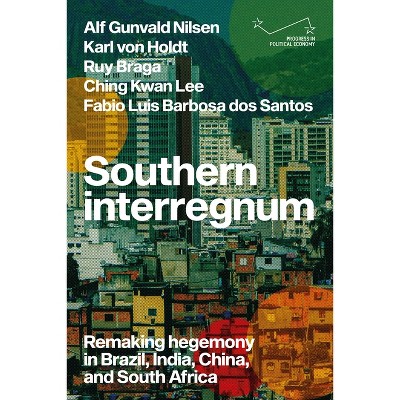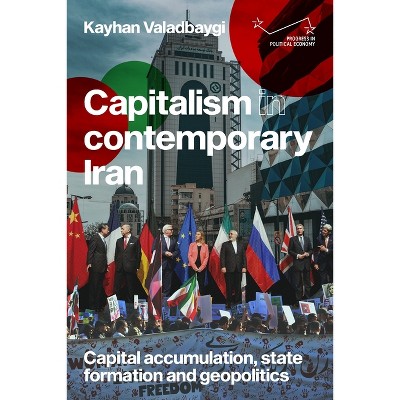Sponsored

Imperialism and the Development Myth - (Progress in Political Economy) by Sam King (Paperback)
In Stock
Sponsored
About this item
Highlights
- China has moved from being one of the poorest societies to a level now similar with other relatively developed Third World societies - like Mexico and Brazil.
- About the Author: Sam King is a researcher in imperialism and world trade, and editor of red-ant.org
- 312 Pages
- Political Science, Political Economy
- Series Name: Progress in Political Economy
Description
About the Book
China and Third World societies cannot 'catch up'. Much of the world's work has moved to the poor countries, yet - through dominating critical aspects of labour process - a few rich, imperialist countries monopolise the benefits. China and the Third World will remain poor and the vast global social divide is - under the present system - permanent.Book Synopsis
China has moved from being one of the poorest societies to a level now similar with other relatively developed Third World societies - like Mexico and Brazil. The dominant idea that it somehow threatens to 'catch up' economically, or overtake the rich countries paves the way for imperialist military and economic aggression against China. King's meticulous study punctures the rising-China myth. His empirical and theoretical analysis shows that, as long as the world economy continues to be run for private profit, it can no longer produce new imperialist powers. Rather it will continue to reproduce the monopoly of the same rich countries generation after generation. The giant social divide between rich and poor countries cannot be overcome.From the Back Cover
In this book, King argues that China and other societies cannot 'catch up' with richer countries. The contemporary world system is permanently dominated by a small group of super-rich nations that maintain a stranglehold over the global labour process. Globalisation of production since the 1980s means more of the world's work is now carried out in the poorest countries. Yet richer, 'imperialist' regions like North America, Western Europe, Japan and Australia still secure most of the wealth and benefits.
Their monopoly comes from controlling the technologically advanced processes within the overall global division of labour while farming out other processes. Income levels in all the richer countries remain five or ten times higher than in societies like China. The huge gulf between them is actually getting bigger not smaller. China is widely viewed as 'catching up' economically and threatening their world dominance. This view is false. Through examination of the global division of labour, King's book shows that China's real level of economic development and its concrete economic power is more comparable to Brazil and Mexico than the USA or Germany. China and some other societies have been able to develop limited defensive military capabilities, but it remains impossible for them to catch up economically or for them to emerge as a new group of imperialist societies growing richer by exploiting labour and resources beyond their borders. Economic imperialism remains the domain of the same nations that have dominated since colonial times. Today's deafening shouts about China's supposed 'threat' to that system distracts us from its ongoing reality.Review Quotes
'Sam King offers an important intervention to critical/radical/Marxist literature on the political economy of (under)development in the Third World/Global South in the neoliberal era by critically and comprehensively engaging with the notion of imperialism.'
Gonenc Uysal, Osmaniye Korkut Ata University, Capital & Class (Volume 46, Issue 2)
About the Author
Sam King is a researcher in imperialism and world trade, and editor of red-ant.org










